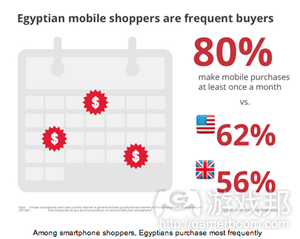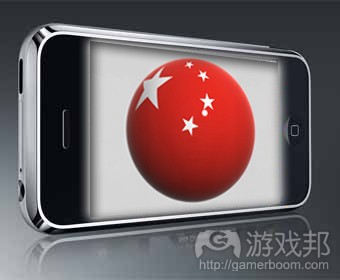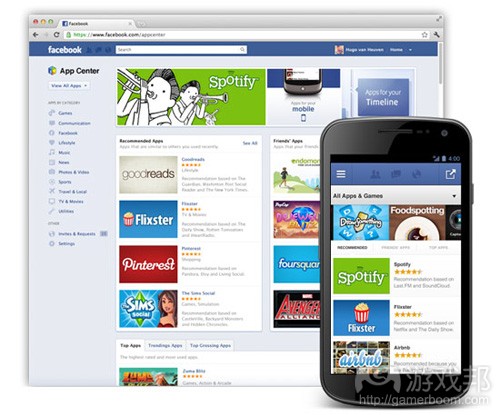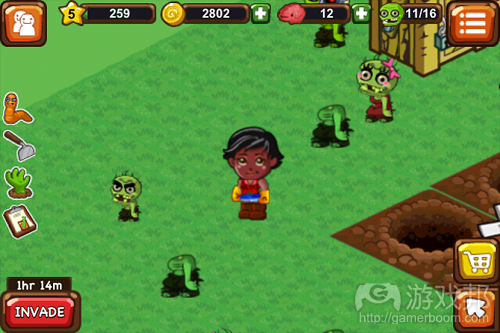每日观察:关注中东智能手机覆盖率及市场潜力(5.24)
1)谷歌Mobile Planet年度调查报告显示,阿拉伯联合酋长国(以下简称UAE)是全球智能手机覆盖率最高的地区,该地区拥有智能手机的移动用户占比高达62%(游戏邦注:该调查由Ipsos MediaCT负责执行,调查对象为26个国家或地区的手机用户)。
沙特阿拉伯智能手机覆盖率也相对较高,在该地区手机用户中占比60%,而美国则是44%。
这些富饶中东地区的用户在智能手机上的网购消费水平也高于美国用户,41%的埃及智能手机用户以及39%的UAE用户曾通过智能手机购物,而美国用户的这一比例则是35%。
80%的埃及智能手机用户每月至少通过手机上完成一笔购物交易,而美国用户的这一比例则是62%,英国用户的这一比例为56%。
除此之外,中东智能手机用户对移动广告的接受程度也相对更高。调查发现90%以上的UAE、埃及和沙特阿拉伯用户在智能手机上浏览网页时会注意到其中的广告。
报告还指出,比起中国和巴西等新兴国家,这些中东富裕国家的用户每天使用智能手机上网的频率更高,下载的应用程序也更多,也更常使用手机查找本地信息。
2) Woori Investment & Securities Co.最近报告指出,2012年第一季度苹果在中国智能手机市场份额已从原来的8%左右上升至19%,该时期iPhone销量达620万部。
报告称三星是中国第一大智能手机供应商,第一季度在中国智能手机市场份额达28%,销量为900万部(游戏邦注:但微软中国地区首席运营官Michel van der Bel最近却声称iPhone在中国市场份额仅6%,而Windows Phone在中国市场却占比7%)。
观察者称,苹果公布的数据显示第一季度iPhone全球销量为3510万部,假如Woori数据无误,那就意味着中国市场创造了17.7%的iPhone销量。
3)据彭博社报道,微软日前宣称将于10月份发布的Windows 8将与苹果在平板电脑市场展开角逐。微软首席执行官Steve Ballmer表示,此举将让Windows成为最受欢迎的操作系统,并预计今年Windows 7设备出货量将达3.5亿部。
4)据gamasutrar报道,Facebook日前透露了App Center的一些细节情况,指出如果用户通过手机平台的App Center访问应用程序,Facebook将把用户导向该应用在App Store或Google Play商店的页面,如果用户已安装该应用,系统就会载入该应用程序。
此外,App Center浏览器版本还将添加一个“发送到手机”按钮,它会在任何绑定Facebook帐号的设备上自动安装应用。据Facebook所称,这种简便操作有利于开发者增加手机游戏及应用的安装量。
5)NPD Group最新数据显示,2-14岁少儿用户每天在智能手机、平板电脑或iPoud Touch应用上的投入大量时间。这些少儿用户的移动设备上平均安装12款应用,其中有88%属于免费应用。
最受这些孩子欢迎的应用是游戏,平均每部设备上安装了6.5款游戏;有87%男孩玩这些设备上的游戏,而女孩的这一比例则是80%;其他较受欢迎的分别是音乐和照相应用。
此外,游戏应用还是付费用户比例最高的类型(其付费用户占比35%),其次分别是教育类和电影应用。
但NPD也指出,虽然市面上有许多富有吸引力和娱乐性的儿童应用,但这些少儿用户通常只会短暂使用后就将其搁置一旁。
6)据Dow Jones报道,继与美国冰球联盟展开营销合作之后,Zynga手机游戏《Draw Something》还将与梦工厂携手,推广即将上映的动画电影《马达加斯加3:欧洲大围捕》(Madagascar 3: Europe’s Most Wanted)。
报道称这个品牌营销活动内容包括条幅广告、视频预告片和游戏中的看词作画(例如在游戏中根据相关字词,画出该动画片中的企鹅角色),其投入介于25万至50万美元。
7)据gamasutra报道,手机游戏开发商Ustwo最近被指其游戏《Papa Quash》与PlayStation Move游戏《J.S. Joust》功能相似。
《J.S. Joust》要求玩家分别手持PS Move控制器,并且努力让自己的控制器与游戏音乐同步之时,想法敲打对方手中的控制器。《Papa Quash》虽然是一款iOS游戏,但也要求玩家敲打其他玩家手中的iPod或iPhone。这种模仿行为在Twitter上引来许多用户的指责。
但Ustwo营销总监Steve Bittan对此事的回应是,这是公司受英国真人秀节目Big Brother UK参赛者Sam Pepper(游戏邦注:他在Twitter和YouTube上都有大量粉丝)之托而开发,其游戏理念也来自Sam Pepper,所以这款应用的所有权归Sam Pepper,另外他们事前也向对方告知情况并获得认可后才开发游戏,所以Ustwo无需对此负责。Sam Pepper原本打算使用自己的App Store帐号发布游戏,但中途遇到了一些问题,因此就使用Ustwo帐号上传游戏。
但《J.S. Joust》开发商Die Gute Fabrik否认自己曾批准他人模仿这一机制开发游戏,Ustwo现在已从美国App Store撤下该游戏。
8)据insidemobileapps报道,独立开发商Playforge日前宣布推出继集游戏《僵尸农场2》。但据观察者所称,该游戏与原版本玩法和风格基本相同,例如玩家虚拟形象、美术设计、背景音乐等元素几乎与原版无异。
不过,它支持玩家将原来的游戏进度转移到新版游戏中,此外还移除了庄稼枯萎的机制,并引进了“新鲜度”指示器。例如,某庄稼生长时间为4小时,但可以保鲜12小时,如果玩家数天后才返回游戏也不会遭遇损失,只会收到比完整收割庄稼少一半的收益。(本文为游戏邦/gamerboom.com编译,拒绝任何不保留版权的转载,如需转载请联系:游戏邦)
1)Google study finds affluent Middle East countries among most enthusiastic smartphone users
Kathleen De Vere
Google’s annual Mobile Planet smartphone study has revealed the United Arab Emirates has some of the highest smartphone penetration in the world, with 62 percent of mobile phone users in the country reporting that they own smartphones.
The study, which was conducted with Ipsos MediaCT, surveyed mobile phone users in 26 countries around the world. Smartphone penetration was also extremely high in Saudi Arabia, where 60 percent of mobile phone users had smartphones. By comparison, smartphone penetration in the U.S. was 44 percent according to the study.
Smartphone users in affluent Middle Eastern countries like Egypt and the United Arab Emirates were also more likely than Americans to make mobile purchases. According to the study 41 percent of smartphone users in Egypt and 39 percent of smartphone users in UAE had made a purchase on their smartphones, compared to 35 percent of Americans.
Egyptian smartphone users were also more frequent mobile purchasers than consumers in Western countries. 80 percent of Egyptian smartphone owners reported making mobile purchases at least once a month, compared to 62 percent of American shoppers and 56 percent of smartphone users in the U.K.
Middle Eastern smartphone owners were also more open to mobile advertising. Google’s study found more than 90 percent of smartphone users in the United Arab Emirates, Egypt and Saudi Arabia noticed mobile advertising while accessing the internet using their smartphone’s browser.
Google found smartphone users in affluent Middle Eastern countries were also more likely to go online with their smartphones multiple times a day, had more apps on their phones, and looked up local information more often than users in other emerging smartphone markets like China and Brazil.
Overall, the study shows that even though China is frequently pegged as the emerging smartphone market with the biggest potential, developers should also consider the Middle East and its young, affluent consumers in their international plans.(source:insidemobileapps)
2)Apple’s share of Chinese smartphone market jumps to 19%
by James Nouch
Apple’s share of the Chinese smartphone market has grown from roughly 8 percent to 19 percent in Q1 2012, with iPhone sales hitting 6.2 million units during the same period.
That’s according to a report from Woori Investment and Securities Co. reported by the Yonhap News Agency, which attributes Apple’s rapid growth to the January launch of the iPhone 4S.
Sharing and caring
The same report shows Samsung as the leading vendor in China – which is now the largest smartphone market in the world – with a 28 percent market share and 9 million units sold in Q1 2012.
These figures directly contradict recent comments from Microsoft’s COO for China Michel van der Bel. He recently claimed iPhone held just a 6 percent share of the Chinese market, putting it behind Windows Phone on a 7 percent share.
Woori’s figures suggest that Apple’s share of the smartphone market is considerably larger than that, although the size of China mean’s it’s typically a difficult market to evaluate, with figures often varying wildly from one source to the next.
Apple’s own figures show that it sold 35.1 million iPhones worldwide in the three-month period ending 31 March 2012. If Woori’s numbers are accurate, China is currently generating around 17.7 percent of all iPhone sales.(source:pocketgamer)
3)Microsoft claims Windows is the “most popular” OS
by Zen Terrelonge
Reckons it will ship 350m Win 7 devices in 2012.
Windows Phone occupies just two per cent of all smartphone sales, but Microsoft says forthcoming Windows 8 will be able to compete with Apple and challenge its overwhelming tablet market lead, according to Bloomberg.
The software giant is currently working on Windows 8 for an October release, with the OS set to power tablets and ultrabooks to encourage consumers to migrate away from the iPad.
Steve Ballmer, CEO of Microsoft, said: “It makes Windows the most popular single system.”
Meanwhile, the firm expects to ship 350 million Windows 7 devices this year.(source:mobile-ent)
4)Facebook’s App Center aims to drive iOS, Android game installs through convenience
by Mike Rose
Facebook has detailed how its upcoming dedicated games and applications solution App Center aims to help developers drive mobile installs through convenience for users.
When accessing apps through the mobile App Center, Facebook will redirect the user to the specific App Store or Google Play marketplace pages, or load the app if it has already been installed before.
A “Send to Mobile” button will also be added to the browser version of the App Center, which will automatically install the app on any device connected to the Facebook account. Facebook says that the simplicity of the approach will make it easier for developers to increase install bases for mobile games and apps. (source:gamasutra)
5)Kids spend an hour per session on apps
by Zen Terrelonge
And they play five days a week.
New data from the NPD Group reveals that children aged two to 14 are spending a significant portion of their day on smartphone, tablet and iPod Touch apps.
On average, they have around 12 apps on their mobile device, and 88 per cent of these apps are free.
Games are the most popular app types for children – an average of 6.5 per device – with 87 per cent of boys playing ahead of 80 per cent of girls. Meanwhile, other popular apps involve listening/downloading music, and taking photos.
Gaming apps are also the most paid for type, securing 35 per cent of spenders, followed by educational and movie apps.
Anita Frazier, industry analyst, The NPD Group, said: “The wide variety and sheer volume of free entertainment content available for app devices is clearly having an impact on kids and the way they play.
“While there are a number of engaging and entertaining apps available to kids, many are used and abandoned after a short time, so it’s important to get a clear, factual picture of the role that apps are playing in kids’ lives.”
Parents planning to buy a device for a child to use would be influenced by unlimited data and the number of educational apps, while those that own a device that don’t allow child use would change their mind if devices were more durable and educational.
The data follows our report that 38 per cent of under-8s have used tablets and smartphones, while the average US teen now sends 60 texts per day.(source:mobile-ent)
6)Draw Something hopes you’re ready to doodle DreamWorks characters
by Joe Osborne
If there’s one other reason why Zynga might have been excited to gobble up OMGPOP aside from its (dwindling) oodles of Draw Something players, it was the advertising opportunities. Hot off the heels of Zynga’s deal with the National Hockey League, Dow Jones reports that the company will soon bring DreamWorks’ upcoming Madagascar threequel to the Pictionary for phones.
The ad deal, which is set to launch in conjunction with the debut of Madagascar 3: Europe’s Most Wanted in theaters, will include banner ads, video trailers and relevant words to draw in the game. According to Dow Jones, the deal cost between $250,000 and $500,000, which sounds huge to us, but is reportedly normal for the two companies.
“This is the largest place where we can have this type of interaction,” DreamWorks marketing head Anne Globe told Dow Jones. “It seems as though everywhere you go, everyone is drawing something.” Globe was drawn to Draw Something–pun intended, and no, we’re not ashamed–by her 10-year-old daughter’s fascination with the game.
Now, Draw Something just made a pretty penny for Zynga, hemorrhaging players or not. What’s better (for Zynga) is that the company reportedly has other major advertising deals in the works for the mobile hit, according to Dow Jones’ nameless sources. So, if you happen to see the word “penguin” in Draw Something, now you know what’s up.(source:games)
7)Indie darling J.S. Joust caught in cloning controversy
by Mike Rose
The latest game from Whale Trail developer Ustwo is causing quite a stir today, due to its stark similarities to Die Gute Fabrik’s PlayStation Move-controlled J.S. Joust.
In J.S. Joust, players hold a PS Move controller each, and must try to knock the controller in other players’ hands without letting their own controller be nudged out of sync with the music that is currently playing.
Ustwo’s Papa Quash features a similar concept, except it is available for iOS devices, and requires players knock the iPod or iPhone in the hands of other players. The revelation has caused outrage on Twitter, with people calling it a clone and displaying disappointment in the studio.
Via the Twitter hashtag #joustice, indie studio Vlambeer wrote, “Johann Sebastian Joust is amazing & it getting ripped off breaks our hearts,” while Metanet Software’s Raigan Burns noted, “Cloning only works because most consumers are apathetic and/or ignorant, and some developers are immoral/exploitative/shameless.”
However, Ustwo’s marketing director Steve Bittan has told Gamasutra that his studio should not take responsibility for the similarities, and that it is down to the person who commissioned the work — former Big Brother UK contestant Sam Pepper.
“We made the app for Sam Pepper. It’s his app. Not ours,” said Bittan. “It’s not an Ustwo app. It’s a Sam Pepper app.”
“Papa Quash was a concept from Sam Pepper,” he continued. We told him about J. S. Joust and he emailed them to OK it. After we got that assurance we did service work on it.”
“Sam has a typical fan base. Young and into social media,” he continued. “We asked him to reach out to J. S. Joust and explain his concept which he did. We had assurance everything was ok.”
The game was meant to be uploaded to the App Store via Pepper’s own account rather than Ustwo’s, however Bittan tells us, “He wanted to launch it and we had issues with his account so went with ours so he could reach out to his fans.”
“He is a ex-Big Bro contestant in UK and has a big Twitter and YouTube following. We’re in process of getting his account set up,” he noted.
As for the cloning allegations, Bittan adds, “We’re not into cloning. We genuinely care about what we do and out reputation in the indie community.”
He adds, “We’re upset about how it’s been perceived.”
Gamasutra has contacted Die Gute Fabrik to inquire about the conversation between the studio and Pepper, and will update with any new details provided.
[Update: Die Gute Fabrik has posted on Twitter, "We've been getting a lot of inquiries lately. We're working on an official response - hopefully by tonight." The studio added, "Just to be clear, we have never and would never approve, give permission, or encourage anyone to clone of any of our games."] (source:gamasutra)
Report: J.S. Joust clone removed from App Store
by Tom Curtis
After taking heat earlier this week for cloning Die Gute Fabrik’s PlayStation-move based Johann Sebastian Joust, UK developer Ustwo has agreed to pull its copycat app from the iTunes App Store.
Ustwo’s game, Papa Quash, used a similar design as the indie darling Johann Sebastian Joust, but traded that game’s PlayStation Move controllers for iOS devices. Audiences quickly noted the similarities and called the studio out for allegedly stealing Die Gute Fabrik’s design.
According to mobile app blog The Appside, Ustwo has since spoken to Die Gute Fabrik’s Douglas Wilson, and has agreed to remove the app altogether.
“We are pulling the app ASAP,” Ustwo’s Steve Bittan said.
When the controversy over Papa Quash emerged earlier this week, Bittan told Gamasutra that the game’s design was largely the work of Sam Pepper, a former Big Brother UK contestant who commissioned the game from Ustwo.
“We made the app for Sam Pepper. It’s his app. Not ours,” said Bittan at the time. “It’s not an Ustwo app. It’s a Sam Pepper app.”
Bittan said that Pepper had contacted Die Gute Fabrik for permission to make the game. Pepper allegedly told Ustwo he got the go-ahead, and the studio then began work on the game.
The Johann Sebastian Joust creators, however, denied giving such permission, noting on Twitter, “Just to be clear, we have never and would never approve, give permission, or encourage anyone to clone of any of our games.”
As of this writing, Papa Quash is not available on the U.S. App Store. (source:gamasutra)















































 闽公网安备35020302001549号
闽公网安备35020302001549号